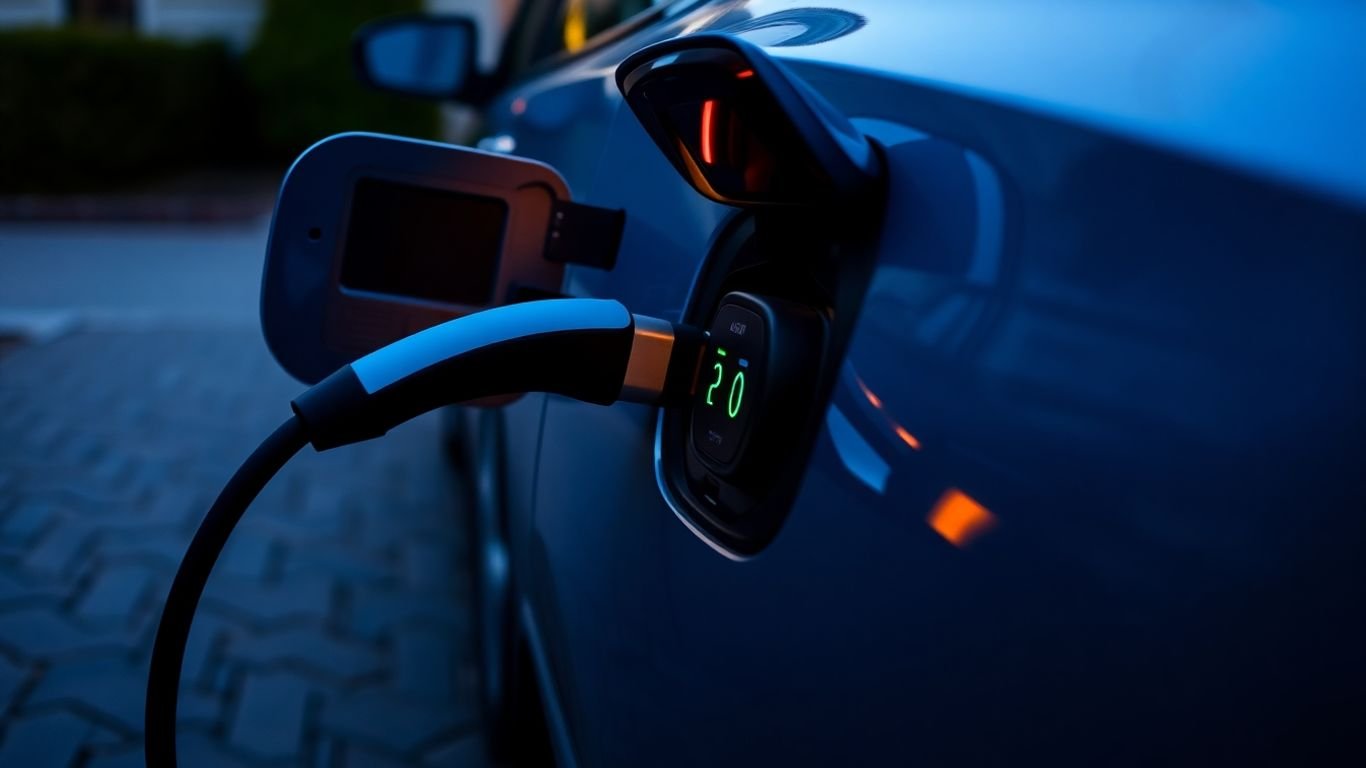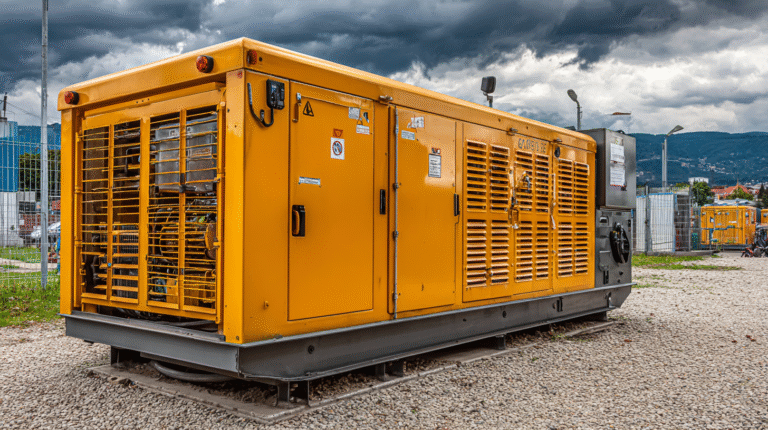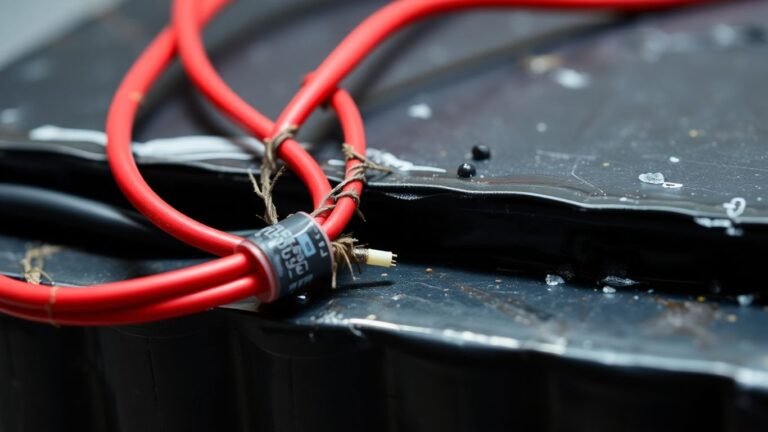How to Choose the Ultimate EV Charger for Your Garage
Thinking about getting an electric car or already have one? You’ll need a way to charge it up, and doing it at home with a reliable EV charger is usually the most convenient and cheapest option. Public chargers are popping up everywhere, but nothing beats plugging your EV charger into your car overnight in your own garage. With so many home EV chargers out there now, it can be a bit much to figure out which one is best for you. We looked into some of the top contenders to help make that decision a little easier.
Key Takeaways
- The ChargePoint Home Flex is a solid choice for its user-friendly app that tracks charging costs.
- For a more budget-friendly option without skimping on features, the Emporia EV Charger stands out.
- Tesla’s Universal Wall Connector is handy because it can switch between different plug types.
- Many home EV chargers offer smart features like app control and charging schedules, which can help save money.
- When picking a home EV charger, think about how fast you need it to charge, cord length, and if you want extra features like app connectivity.
1. ChargePoint Home Flex EV Charger
When you’re looking into residential EV charging solutions, the ChargePoint Home Flex often comes up, and for good reason. It’s a solid choice for installing a car charger at home, especially if you have an EV with a larger battery. This charger is Energy Star certified, which is a nice bonus. It connects via Wi-Fi, making it a smart charger that you can control and monitor remotely.
The app is pretty slick; it can even figure out your local utility provider and estimate charging costs based on your specific electricity rates, which is super helpful for budgeting. Plus, the cable stays flexible even when it’s cold out, which is a small but appreciated detail. It’s compatible with all EVs currently on the market.
Here’s a quick look at its specs:
- Amperage: Up to 50 amps
- EV Connector: J1772 or NACS
- Home Connection: NEMA 14-50, 6-50, or hardwired
- Cord Length: 23 feet
- Weatherproofing: NEMA 3R
- Connectivity: Wi-Fi + Bluetooth
- App Control: Yes
One thing to note is that you’ll need the ChargePoint mobile app and an account to get it set up. Also, you can only pair one Home Flex charger to a single account. While it’s on the pricier side, the build quality and smart features make it a strong contender for many EV owners. If you’re considering a home charging setup, this is definitely one to look into. You might want to check out resources on electric vehicle charging station installation to make sure you’re getting the best setup for your needs. For example, some people find that having a robust power source, like a Bluetti AC500 with expandable batteries, can complement their home charging setup, especially if they’re looking at off-grid capabilities or backup power [b0cd].
The ChargePoint Home Flex is a well-built unit that offers a lot of flexibility for different EV models and home setups. Its smart features, particularly the app’s cost tracking and scheduling capabilities, add significant convenience for daily EV ownership.
2. Emporia EV Charger
The Emporia EV Charger is a solid choice if you’re looking for a high-powered, smart charger that won’t break the bank. It’s one of the more affordable 48-amp chargers out there, especially considering it comes with Wi-Fi connectivity. You can plug it in using a NEMA 14-50 outlet or hardwire it, giving you some flexibility in how you set it up. Plus, it has a nice long 24-foot cable, which is pretty handy.
This charger offers a lot of bang for your buck. It’s safety-certified and built tough with a NEMA-4 enclosure, so it should hold up well against the weather. The adjustable current, ranging from 6 to 48 amps, means you can dial in the charging speed you need. It’s a pretty good deal for what you get.
Here’s a quick look at its specs:
- Type: AC Level 2
- Connector: Type 1 (SAE J1772)
- Max Power: 11.5 kW
- Adjustable Amperage: 6-48A
- Cable Length: 24 feet
- Connectivity: Wi-Fi
One thing to note is that the Emporia app is part of a larger system for monitoring your home’s electricity usage. If you’re only using it for the EV charger, it might feel a bit more complicated than you need. But if you’re interested in tracking your home’s energy use alongside your EV charging, it could be a good fit. It’s definitely a charger worth considering if you want good performance without spending a fortune on home EV charging.
3. Tesla Universal Wall Connector

Even if you don’t own a Tesla, their Universal Wall Connector is a solid choice for home charging. It’s designed to work with both Tesla’s NACS plug and the more common J1772 connector, though you might need an adapter for the latter. This charger is built to be hardwired and offers adjustable amperage from 12 to 48 amps, giving you a maximum of 11.5 kW charging speed. It comes with a 24-foot cable, which is a decent length for most garages.
One of the neat things about this unit is its Wi-Fi connectivity. This allows for firmware updates, which is great for keeping the charger up-to-date. You can also control and monitor charging output through a web-based interface after scanning a QR code on the unit to connect to Wi-Fi. It’s built tough, with a NEMA 3 enclosure that should handle outdoor conditions pretty well. Plus, it’s Energy Star certified, which is always a nice bonus.
| Feature | Specification |
|---|---|
| Charger Type | AC Level 2 |
| Connector Types | NACS, J1772 (with adapter) |
| Power Input | Hardwired |
| Max Amperage | 48A |
| Adjustable Amps | 12A – 48A |
| Max Power | 11.5 kW |
| Cable Length | 24 feet |
| Connectivity | Wi-Fi |
| Weatherproofing | NEMA 3R |
| Warranty | 4 years |
It’s worth noting that while it has Wi-Fi, it doesn’t have the same level of app control as some other chargers. Tesla owners can get more detailed info through other means, but for non-Tesla owners, the app features are a bit more basic. Still, for a reliable and future-proof charger, especially with the NACS connector becoming more common, it’s definitely worth considering. The integrated cord management is a nice touch, too.
The Tesla Universal Wall Connector is a strong contender for anyone looking for a robust and adaptable home charging solution. Its compatibility with multiple connector types and solid build quality make it a practical choice for many EV owners.
If you’re interested in how EV charging fits into the bigger picture of sustainable energy, you might want to look into the growing importance and future of EV charging stations.
4. JuiceBox EV Charger
When we first looked at home EV chargers a couple of years back, the JuiceBox really stood out. A big reason for that was its app, which was pretty easy to figure out. You could get different charging speeds depending on your home’s electrical setup – there was a cheaper 32-amp version, a 40-amp one like the one we tested, and even a pricier 48-amp model. The app let you see how much energy you used and for how long with each charge, plus you could set up notifications and schedule charging for when electricity rates were lower.
However, JuiceBox has since updated that app, and honestly, it’s not for the better in our opinion. It feels more confusing now, and not as straightforward as it used to be. Still, even with the app changes, the JuiceBox remains one of the most feature-packed Wi-Fi enabled Level 2 chargers you can find on the market. It’s built tough, too, with a NEMA 4X rating, meaning it can handle pretty rough weather.
Here’s a quick look at its capabilities:
- Output capability: You can choose from 40, 32, 24, 16, 12, or 6 amps, which translates to 9.6 kW down to 1.4 kW. This flexibility is great for matching your home’s electrical capacity.
- Cord length: It comes with a 25-foot cord, giving you plenty of reach.
- Cord management: Thankfully, it has a built-in system to keep the cord tidy.
- Outdoor rating: With a NEMA 4X rating, it’s designed to withstand the elements.
While the app might have taken a step back in user-friendliness, the core functionality and robust build of the JuiceBox still make it a strong contender for many EV owners. It’s a reliable workhorse that gets the job done, even if you have to spend a little extra time getting used to the updated software.
If you’re looking for a charger that can handle various electrical setups and is built to last outdoors, the JuiceBox is definitely worth considering. You can find more details on different charging solutions and compare them to see what fits your needs best, perhaps looking into alternatives like Tesla Powerwall alternatives if battery storage is also a consideration.
5. Grizzl-E EV Charger

The Grizzl-E EV Charger is built tough, and I mean really tough. They even have videos showing a small vehicle driving over it, which is probably more than you need for a charger that’s just going to sit on your garage wall. But hey, it speaks to its durability. The cables are also pretty rugged, though maybe a bit stiff to hang up neatly.
This charger is a solid option if you’re looking for something reliable without all the bells and whistles. It’s a 40-amp charger, which is plenty for most daily charging needs. While it’s not the fastest on the market, it gets the job done.
Here’s a quick look at its specs:
- Amperage: Adjustable from 16 to 40 amps
- Cable Length: 24 feet
- Connector: J1772
- Enclosure Rating: IP67 (which is pretty good for weather resistance)
- Certifications: Safety certified, Energy Star certified
One thing to note is that if you want to change the amperage or reset the Wi-Fi, you’ll need to open up the front cover and mess with DIP switches. It’s not as straightforward as using an app, but it’s doable. For those in Canada, there are some neat programs like the Grizzl-E Club that can make getting one even more appealing.
While the Grizzl-E Smart can theoretically connect with any EV charging app that uses the OCPP 1.6 protocol, some users have reported initial connection issues. However, the company has reportedly improved this process, making it smoother for new buyers.
It’s a no-nonsense charger that prioritizes a robust build. If you value a charger that can withstand the elements and just needs to reliably charge your EV, the Grizzl-E is definitely worth considering.
6. Wallbox Pulsar Plus EV Charger
The Wallbox Pulsar Plus is a solid contender in the home EV charging market, and it’s made right here in the USA, which is a nice bonus. It’s a Level 2 charger that can deliver up to 48 amps, meaning it can charge most EVs pretty quickly. You can get it either as a plug-in unit with a NEMA 14-50 connector or as a hardwired version, giving you some flexibility depending on your setup. This charger really shines with its smart features and robust build.
One of the best things about the Pulsar Plus is how adjustable it is. You can set the charging current anywhere from 6 to 48 amps, so it’ll work with different electrical circuits in your home and also with EVs that might have lower charging limits. It also comes with a generous 25-foot cable, which is usually long enough to reach the charging port on most vehicles without a struggle. Plus, it’s got Wi-Fi and Bluetooth connectivity, so you can manage charging schedules and monitor your sessions through the Wallbox app.
Here’s a quick look at some of its specs:
- Charger Type: AC Level 2
- Max Current: 48A (adjustable from 6-48A)
- Connector: Type 1 (SAE J1772)
- Cable Length: 25 feet
- Connectivity: Wi-Fi, Bluetooth
- Durability: NEMA-4 enclosure for weather protection
The Wallbox Pulsar Plus is built tough with a NEMA-4 enclosure, meaning it can handle pretty much any weather condition you throw at it. Whether it’s rain, snow, or dust, this charger is designed to keep working reliably outdoors.
7. ClipperCreek EV Charger
ClipperCreek has been around for a while, making a name for itself in the EV charging world. They’re known for building pretty solid, no-nonsense chargers that just get the job done. If you’re not super into all the fancy app features and just want a reliable way to charge your car at home, ClipperCreek is definitely worth a look.
They offer a range of Level 2 chargers, and while they might not always have the highest amperage or the longest cords compared to some of the newer, tech-heavy options, their build quality is usually top-notch. You’re getting a charger that’s built to last, often with good weatherproofing for outdoor installation. It’s the kind of charger you can install and then mostly forget about, knowing it’s doing its thing.
One thing to keep in mind is that some ClipperCreek models are more basic. They might not have Wi-Fi connectivity or the ability to schedule charging through an app. This isn’t necessarily a bad thing, though. For many people, a simple plug-in and charge experience is exactly what they want. It means fewer potential software glitches and a more straightforward setup process.
Here’s a quick look at what you might find:
- Durability: Built tough for long-term use.
- Simplicity: Easy to operate, often without complex apps.
- Reliability: Known for consistent performance.
- Variety: Different amperage options to suit your needs.
If you’re looking for a charger that prioritizes function and longevity over bells and whistles, ClipperCreek is a brand that consistently delivers. They’re a solid choice for anyone who wants a dependable home charging solution without a lot of fuss. Understanding the different types of electric vehicle (EV) charging stations can help you pick the right one for your setup EV charging stations.
While some chargers boast dozens of features and app integrations, ClipperCreek often focuses on the core functionality: delivering power safely and reliably. This approach appeals to a segment of EV owners who value simplicity and long-term dependability above all else.
8. Enel X Way JuiceBox EV Charger
The Enel X Way JuiceBox has been a solid contender in the home EV charging scene for a while now. It’s known for being a pretty robust and feature-packed option, especially if you’re looking for something with smart capabilities. When it first came out, it really impressed a lot of people, myself included, with its user-friendly app that made managing charging sessions a breeze. You could easily track how much energy you were using, how long it took to charge, and even set up notifications. Plus, it offered different amperage versions, so you could pick one that best suited your home’s electrical setup.
The JuiceBox offers a good balance of power and smart features for most EV owners. It’s not the cheapest option out there, but you do get a lot for your money. The app, while it’s had some updates that some folks find a bit less intuitive than before, still provides a good amount of control. You can schedule charging for off-peak hours, which is great for saving money if your utility company has time-of-use rates. It’s also built to handle being outdoors, which is a big plus for many homes.
Here’s a quick look at what it offers:
- Adjustable Amperage: Available in different versions, typically up to 40 or even 48 amps, letting you choose the charging speed that works for you.
- Smart Connectivity: Connects via Wi-Fi, allowing you to use the app for monitoring and control.
- Durable Design: Built for outdoor use, so you don’t have to worry about the weather.
- Cord Management: Often includes built-in solutions to keep your charging cable tidy.
While the app’s interface might take a little getting used to after its updates, the JuiceBox remains a strong choice. It’s a reliable charger that gives you the flexibility to manage your EV charging effectively. If you’re looking for a smart charger with a good track record, the JuiceBox is definitely worth considering. It’s a good example of how home charging technology has evolved, offering more than just a simple plug-in. You can find more details on various charging solutions, including alternatives like the Enphase IQ battery system, to complement your charging setup.
9. Electrify America EV Charger
Electrify America might be more known for its public charging stations, but they also offer home charging solutions that are worth a look. While they don’t have a single standout model like some other brands, their chargers generally aim to provide reliable charging for everyday use. They are considered among the top rated car charging units by some users, especially if you’re already familiar with the Electrify America network.
When considering their home chargers, you’ll find options that focus on straightforward functionality. These units are designed to get the job done without too many bells and whistles, making them a solid choice for those who want a dependable charger. They often come with decent cable lengths and are built to withstand various weather conditions, which is a plus for garage or outdoor installations.
Here’s a quick look at what you might find:
- Charging Speed: Typically Level 2, offering significantly faster charging than a standard wall outlet.
- Connectivity: Some models may offer Wi-Fi connectivity for basic monitoring or scheduling, though this isn’t always a primary feature.
- Durability: Built to handle typical home environments, often with some level of weather resistance.
While they might not always top the charts for advanced smart features or the absolute lowest price, Electrify America’s home chargers are part of the broader ecosystem of electric vehicle support. They represent a practical option within the best electric car charging equipment landscape, especially for drivers who value the brand’s public charging presence.
Electrify America’s home chargers are a practical choice for EV owners looking for a reliable way to charge their vehicles overnight. They focus on delivering consistent power and are built with durability in mind, fitting well into the needs of many households.
It’s always a good idea to check the specific model details, as features can vary. But overall, Electrify America provides a functional option for home EV charging.
10. Autel EV Charger
Autel might not be the first name that pops into your head when thinking about EV chargers, but they’ve definitely earned a spot on our list. The Autel MaxiCharger Lite 50-amp is a solid contender, especially if you’re looking for a charger that’s built tough and offers some smart features without breaking the bank. It’s a great option for those who want a reliable charging solution that can handle various installation environments.
This charger comes with adjustable amperage, meaning you can dial in the charging speed from 6 to 50 amps. That’s pretty handy if you have different charging needs or if your home’s electrical setup has limitations. It also sports a decent 24-foot cable, which is usually long enough to reach your EV’s charging port without much fuss. The standard J1772 connector means it’ll work with pretty much any EV out there, except for Teslas unless you have an adapter.
One of the standout features for the Autel is its security. It includes an RFID card reader, which is a nice touch. This lets you lock and unlock the charger, preventing anyone else from using it. This is particularly useful if you live in an apartment building with shared parking or if you just want that extra layer of control. You can find more details about the Autel EV charger and its secure access options on their product page.
Here’s a quick rundown of what you get:
- Adjustable Power: Set it anywhere from 6 to 50 amps.
- Connectivity: Comes with Wi-Fi for smart features and app control.
- Durability: Features a NEMA-4 enclosure, so it can handle outdoor installations.
- Security: Includes an RFID card reader for access control.
- Warranty: Backed by a 3-year warranty.
While the Autel MaxiCharger Lite is a strong performer, some users have noted that the charging cord can be a bit stiff in very cold weather. Also, there can sometimes be slight delays in the app’s reporting when connected via Wi-Fi. These are minor points, though, and don’t detract too much from its overall value.
Overall, the Autel MaxiCharger Lite 50-amp is a well-rounded charger that offers good performance, smart capabilities, and a focus on security. It’s a smart choice for many EV owners looking for a dependable home charging setup.
Wrapping Up Your Home EV Charger Search
So, picking out the right home EV charger might seem a little much at first, but it’s really about finding what fits your car and your wallet. We looked at some solid options, like the ChargePoint Home Flex for its smart app and tracking, and the Emporia as a great budget-friendly pick that still gets the job done. Tesla’s Universal Wall Connector is also a good shout, especially with its built-in adapter. Ultimately, charging at home is way more convenient and often cheaper than relying on public stations. Take a look at your car’s needs, your budget, and how you plan to use it, and you’ll find a charger that makes powering up your electric ride a breeze. Happy charging!
Frequently Asked Questions
What’s the difference between Level 1 and Level 2 EV chargers?
Level 1 chargers use a regular 120-volt outlet, like the one you plug your phone into. They’re slow but easy to use. Level 2 chargers use a 240-volt outlet, similar to what a clothes dryer uses. They charge your electric car much faster, usually four to eight times quicker than Level 1. For home use, Level 2 is generally the best choice for convenience and speed.
Do I need a special outlet for a Level 2 EV charger?
Yes, typically. Level 2 chargers need a 240-volt outlet. This might mean having an electrician install a new outlet in your garage, especially if you don’t already have one for an appliance like a dryer. Some chargers can also be hardwired directly into your home’s electrical system without a plug.
What does ‘smart charger’ mean for an EV charger?
A ‘smart charger’ connects to your home’s Wi-Fi. This lets you use an app on your phone to do cool things like schedule charging for when electricity is cheaper (off-peak hours), check how much you’re spending on charging, and see how much battery you’ve added. Regular chargers just plug in and charge without these extra features.
How do I know if a charger will work with my electric car?
Most home EV chargers use a standard connector called J1772, which fits most electric cars. Tesla vehicles used to have a different connector, but many newer Teslas and chargers now use the North American Charging Standard (NACS). Some chargers come with adapters or have interchangeable connectors, so you can switch between J1772 and NACS if needed.
Can I install an EV charger outside my garage?
Yes, many home EV chargers are built to handle outdoor conditions. They have ratings like NEMA 3R or NEMA 4, which tell you they can withstand rain, dust, and other weather. Just make sure the charger you choose is rated for outdoor use if you plan to install it outside.
How much does it cost to install a home EV charger?
The cost can vary a lot. If you already have the right 240-volt outlet or enough electrical power in your home, installation might only cost a few hundred dollars for the electrical work. However, if you need to upgrade your home’s electrical panel or run new wiring, it could cost several thousand dollars. The charger itself is a separate cost.








